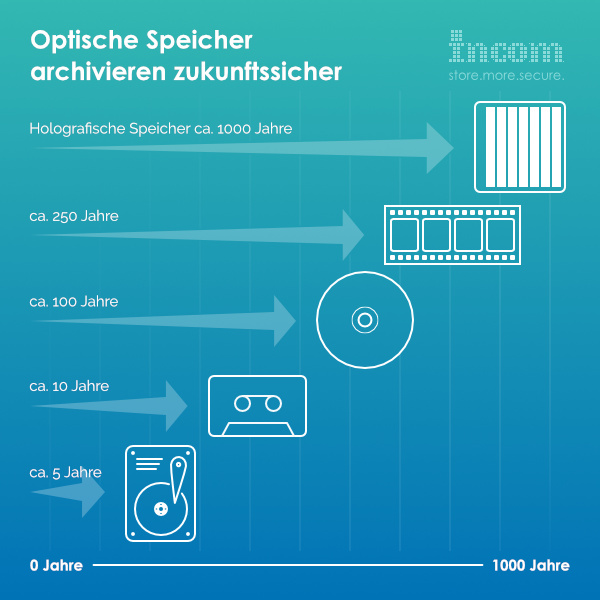As one of the pioneers and probably still strongest advocates of optical storage systems, INCOM followed Mircosoft's approaches with great excitement. In contrast to the available and market-ready storage of information on Blu-ray media, which can already show a durability of more than 100 years, the data storage as well as the reading of the glass panes in Microsoft's project Silicia is currently only possible under laboratory conditions. A more market-ready version, but with a significantly lower storage capacity, was presented by INCOM and its partner Syylex at the Cebit already in 2012. Syylex also stored data on a glass master, which, however, unlike Microsoft's Silicia, was compatible with commercially available DVD drives and could be read in these. Syylex gave these glass media a durability of 1000 years.
Although the market-ready optical storage on Blu-ray media "only" offers a durability of up to 100 years, the media can be written and read in standard Blu-ray drives. What all optical storage systems have in common besides the long durability is also the energy efficiency. Even in large storage systems, so-called libraries, the information stored on the optical data carriers consumes almost no energy and generates no heat, which in turn has to be cooled down at great expense.
These arguments also convinced Facebook, which started developing its own storage solution with the Blu-ray libraries distributed by INCOM before 2014. With these storage systems in the petabyte range, companies can significantly reduce their electricity costs by up to 80% and, last but not least, the migration costs that would otherwise be incurred. In terms of ecological sustainability, too, the optical systems are therefore fully convincing.
With Sony and Netzon/HIT INCOM offers a broadband solution, with which the physician in private practice, large hospitals, small and medium-sized enterprises, as well as libraries, banks and insurance companies can archive data uncomplicated and future-proof.
